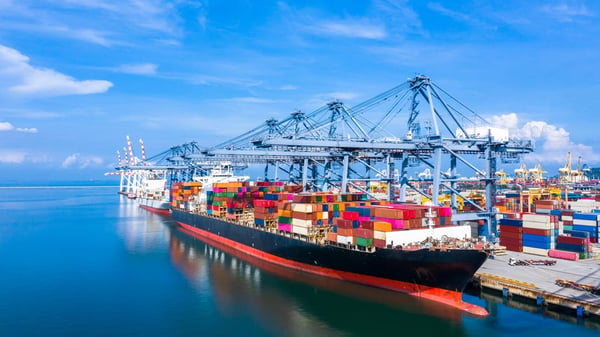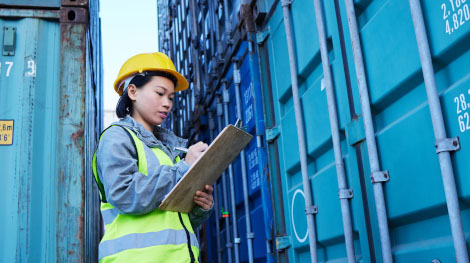One of the most frustrating things that can happen during the shipping process is your cargo getting stuck in customs. When this happens, it can represent a delay, additional costs, and a headache for everyone involved. There are many reasons that goods can get stuck in customs, but attaching the wrong commodity code is one of the most substantial and easiest to mess up.
This blog will explain what a Commodity Code is, why it is crucial, and how you can find the correct one for your goods.
What Is A Commodity Code?
A Commodity Code, also known as a Tariff Code or a Harmonised System Code, is essential for the shipping process. HS codes can be 6, 8, 10 or 12 digit numbers. The first 6 are a standard worldwide, after that it can vary between countries. In short, this code helps to inform carriers, customs, and other relevant parties what your goods are. Without having to unpack everything, of course! This is essential for:
- Completing declarations and other paperwork.
- Finding out if there is any duty or VAT you need to pay.
- Checking if there are any duty reliefs you're eligible for.
Why do I Need a Commodity Code?
When importing into a country, most governments require that you declare the kind of goods you're importing. The commodity code is a standard among almost all countries as the way you inform the relevant parties about this information.
As the importer, it's your responsibility to ensure your products have the correct codes attached to them. So long as this is true, you’re greatly increasing the chances of your goods passing smoothly through customs. However, there are often other things you need to get right, so remember to check the other requirements for your shipment.
Your commodity code will also help you to check whether there are any special restrictions on your goods, what duty needs to be paid or if you'll need an import license.
What Happens if I Get My Commodity Code Wrong?

If the error is noticed while the goods begin their customs process, it is likely to cause delays as you must get all of your documents in order before importing. The knock-on effects can be sizable because this increase in transit-time isn’t factored into the supply chain. Manufacturing plants can be halted, deliveries missed and unhappy customers without goods. That all costs money, whilst wasting time and resources. Not good news.
Instead, if your goods are found to have the incorrect commodity code while in the customs process or afterwards, it's likely you will need to pay penalties for the wrong codes on your goods. You may also end up paying interest on back-payments or have your goods seized entirely.
How do I Ensure I Have the Correct Commodity Code?
For most goods, finding the correct commodity code is easy. All you'll need to do is find the code that best matches the goods you're importing.
The UK government offers an online tariff guide, and if you're unsure, it's possible to email Her Majesty's Revenue and Customs for additional clarification. The HMRC can also offer "Binding Tariff Information Rulings" for goods that are unclear what category they fit into.
You have to be particularly careful when importing. Don’t trust the commodity code sent through by a supplier, it might be the correct one for them but not yourselves. It must be checked against the UK’s (or other destination countries) import commodity code as there could be a discrepancy.
If you're still unsure about the correct commodity code for your goods, it may be helpful to work with an AEO accredited team of shipping experts to help you find the correct code. WTA can help. As experienced shippers, we're able to ensure the commodity code you've provided is appropriate for your product. Contact us here to learn more.








